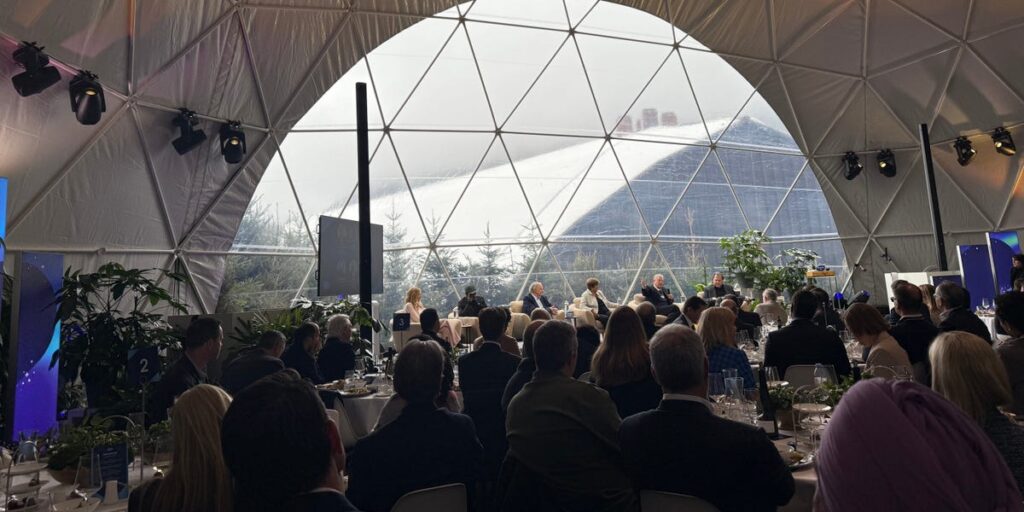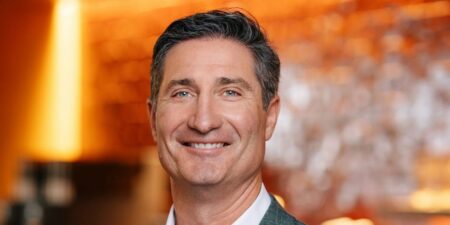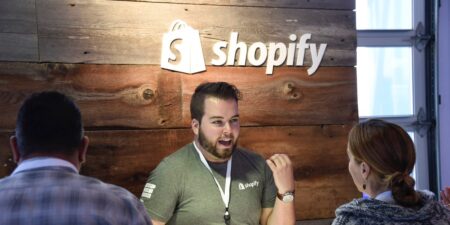- BI journalists share their biggest takeaways and most memorable moments from Davos.
- The gathering of the rich and powerful was dominated by conversations about AI.
- The scale of AI offering was giving people ‘FOBO’ — fear of being obsolete.
Big names like Donald Trump and David Beckham appeared at this year’s World Economic in Davos, but the topic that kept coming up in conversations at the event was AI.
These are Business Insider journalists’ biggest takeaways and most memorable moments from the gathering of the rich and powerful.
Is AI a basic human right?
This year I scored an invitation to the Salesforce lunch, where CEO Marc Benioff was on a panel alongside Sara Eisen of CNBC, Kristalina Georgieva of the IMF, Al Gore, will.i.am, and Bridgewater Associates founder Ray Dalio.
Benioff asked, “Is AI a basic human right?”
This question and the venue in which he asked it — a fancy lunch at Davos with Salesforce clients and global luminaries — epitomized the polarized and multilayered debates about this technology. Some see it as a powerful universal good — maybe even a basic human right. Others see it as a threat to humanity on multiple levels. Maybe it’s a bit of both. Whatever it is, it’s coming.
Some companies are going to capitalize on it, some will try and fail. Salesforce is one company that is already making it happen in practice with its “agentforce” technology.
What struck me at Davos that I didn’t fully understand before is that the tech world sees AI “agents” as full-time workers who will work side by side with people, not just tools to help people. Benioff said this current generation of CEOs will be the last to manage “exclusively human workforces.”
With AI agents, he said, institutions will need to figure out how humans and AI “create success together.” More on this here from my colleagues Hugh Langley and Spriha Srivastava. — Jamie Heller
FOBO
All of this might have you feeling a term bobbing around the conference, FOBO — fear of being obsolete. To be sure, there is always sand in the wheels that slows these trends down. Some people with whom I spoke said they felt paralyzed by choice, with so many vendors pitching their AI wares.
And these services are costly — sellers need to persuade buyers the benefits are worth it. But one way or another, change is coming. And we’ll do our best at BI to keep you informed on what can help you. — Jamie Heller
All that AI investment could pay off this year
There is a real belief that we’ll start to see a return on those AI investments this year. It’s not 100% clear how that’ll come to fruition, but AI agents will likely play a key role, and businesses are starting to think about how to build commercial models around them.
Uncertainty around Trump’s new administration remains a business risk, but there’s optimism tariffs won’t be so strong they’ll stop businesses in their tracks.
And excitement around the return of the M&A and the IPO market is palpable, as exit opportunities will allow the wider business lifecycle to get moving again. — Dan DeFrancesco
What it really takes to help people find and thrive in work
On one panel I moderated about the global jobs gap, the organizers told me the president of Singapore would speak first, for about five minutes. The president, Tharman Shanmugaratnam, ended up speaking for more than 15 minutes — and it was riveting. (You can watch here.)
In a soft-spoken tone, reminding me of a grandfather calmly dispensing wisdom, President Tharman urged the audience to think broadly about how to solve the mounting problems of global un- and under-employment. It’s not just about wages and job creation, he said. It’s about how we raise children (the first three years, he said, are critical). It’s about how we educate people (countries with strong public school systems where a wide swath of people can participate and benefit do better, he said).
In higher education, it’s about giving people relevant skills that can serve them and not leave them feeling dispirited that their investment in education (perhaps their family’s or the state’s) didn’t pay off.
He argued that liberal arts education is not a match for many people for jobs and that the so-called soft skills that such education provides can also be gained in more technical training. “Soft skills are not the sole providence of traditional academic education,” he said.
He said that in the years to come, many people will work their lives in the “informal” sector of employment rather than full-time jobs with benefits, and it’s imperative that people in those jobs also have ways to develop skills and enjoy basic protections.
Clearly — I think it’s worth listening for yourself. As the workplace continues to evolve, we intend to be your place to help you navigate it. — Jamie Heller
A better way to Davos?
For most Davos-goers, The Promenade is where the action happens. Not for Cloudflare CEO Matthew Prince this year, who told us he spent the first three days of this year’s Davos barreling down the nearby ski slopes with clients and some members of the US ski team.
And he’s confident that swapping the meeting room for the ski lift will pay off. “We’ll do more business this year than ever before,” he told BI. Maybe that’s a good tip for the rest of us for 2026? — Hugh Langley
Read the full article here
















